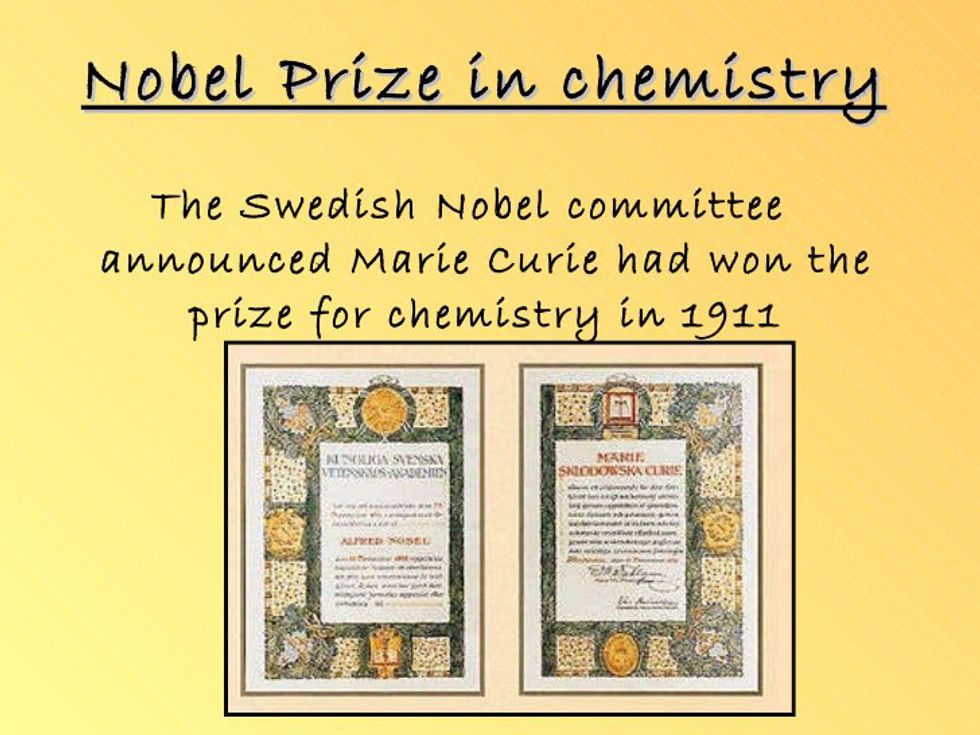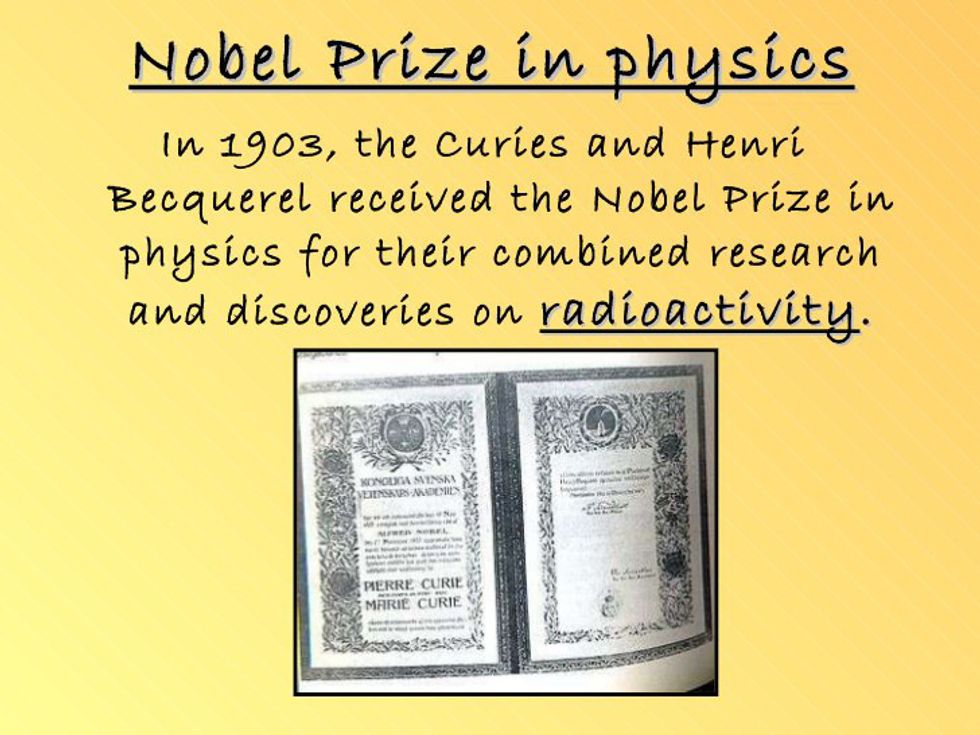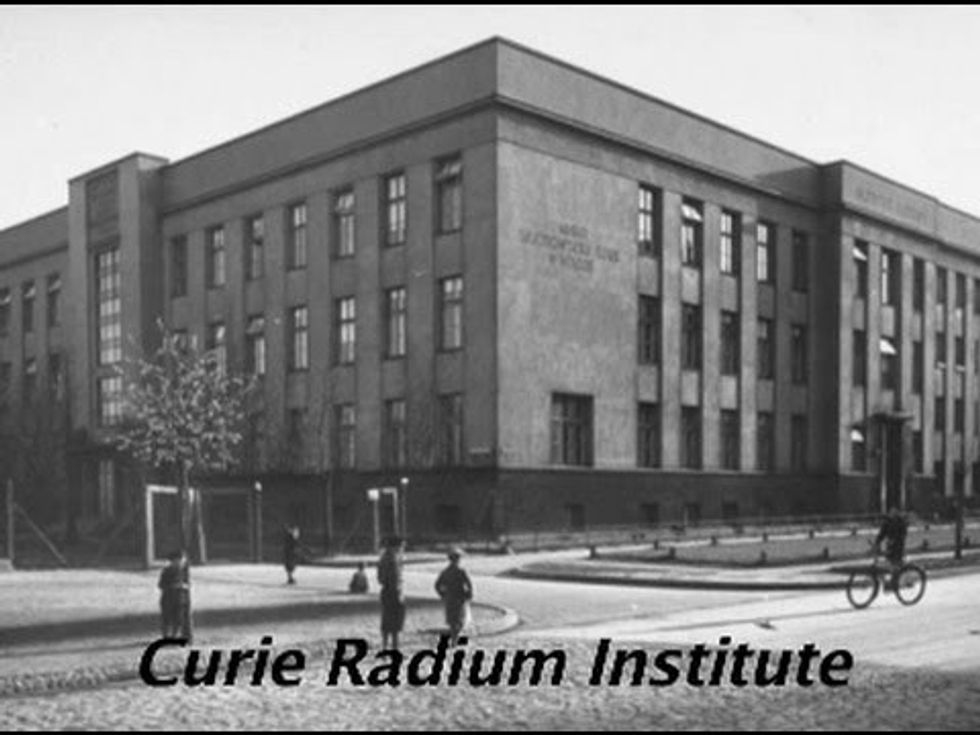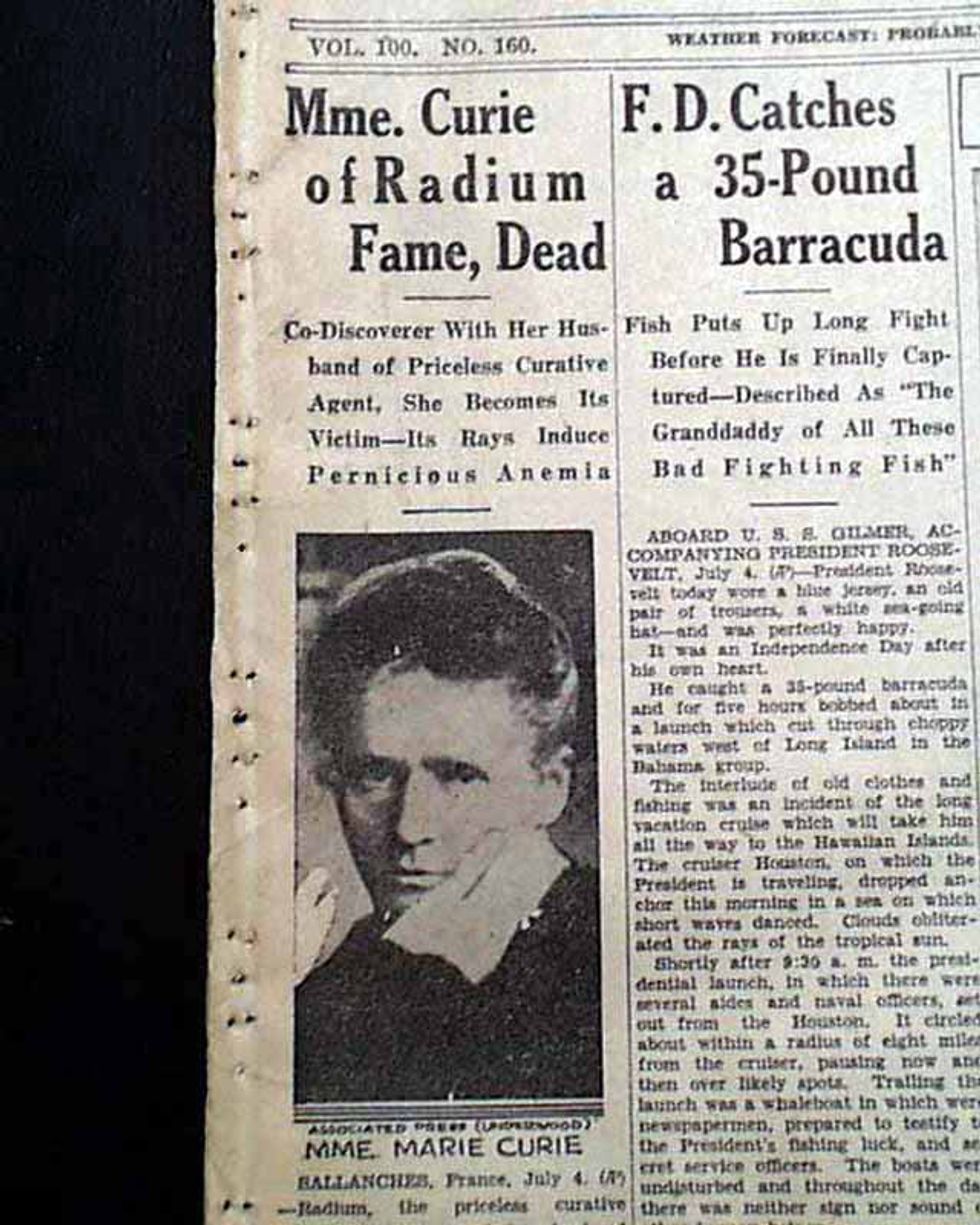Marie Curie, born Maria Salomea Skłodowska, was a Polish and naturalized-French physicist and chemist. She was most famous for her research in radioactive materials, more specifically, in discovering polonium and radium.
Curie was the first woman to win a Nobel Prize, the first person and only woman to win a Nobel Prize in two different sciences. She added two Nobel Prizes to the Curie Nobel Prize legacy of 5 Nobel Prizes.
Regardless of her many awards, Marie Curie is remembered for many of her other accomplishments.
Curie’s research in radioactivity was so astounding that its findings are still put in practice today. She found that radium procured unbelievable properties. Radium seemed to contradict the principle of the conservation of energy and therefore forced a reconsideration of the foundations of physics. In physics, radium provided a way for the structure of an atom to be probed, which led to many innovations in the current model of an atom. In medicine, the radioactivity of radium appeared to offer a means by which cancer could be successfully attacked. This is still how cancer is treated today, chemotherapy.
As a result of this time-changing research, she founded the Curie Institutes in Paris and Warsaw, which remain leading cancer research institutes today.
Curies was also known to be an activist for women’s rights. Being a woman in a male dominated field, Curie faced great scrutiny. As an adolescent, Curie was a gold-medal winning gymnast. However, she was consumed by depression and the pressure of women’s standard in gymnastics and moved to the countryside with some of her father’s relatives. Here she turned to academia. Since then, she had been an advocate for encouraging girls to pursue academics rather than sports dominated by women, such as gymnastics or dance.
In 1934 (age 66), Curie died of aplastic anemia brought on by exposure to radiation while carrying test tubes of radium in her pockets during research and in the course of her service in World War I mobile X-ray units that she had set up. Even though Marie Curie died due to radiation, radiation exposure in hospitals will not kill people today. Curie was overexposed to radiation due to the materials being constantly near her along with the lack of lead vest protection.
Curie is still a role model to girls to take the chance and go into STEM. Her research also saved thousands of lives, and prolonged many more who were diagnosed with cancer. In a way Marie Curie died for us, for society to have a better chance of living in the war against cancer.

























